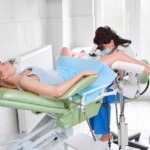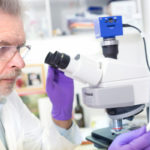 Blood tests help your physician discover potential underlying health issues. It is recommended to have a blood test done yearly in order to check levels. The question most of us have is “What are they looking for?”
Blood tests help your physician discover potential underlying health issues. It is recommended to have a blood test done yearly in order to check levels. The question most of us have is “What are they looking for?”
What a blood test can tell you
An Enzyme test may be ordered. The enzyme levels will indicate disease or damage to organs such as kidneys and liver. This test is also helpful in adjusting medication levels.
Complete Blood Count (CBC) is the most often ordered. It will take count of the number of red blood cells, white blood cells, iron, and platelets. It is used to diagnose infection, blood disorders, inflammation and even detects anemia (iron deficiency). It will show how well your thyroid, heart, and other organs are performing and if there is an infection such as HIV/AIDS where your body is working against itself in an autoimmune response.
Basic Metabolic Panel (BMP) This is run on the plasma in your blood. It measures electrolytes, minerals, glucose, and calcium and can detect issues like cancer, diabetes, bone disease and kidney disease.
These are all incredibly valuable tools diagnostically. It is, however, important to note that all tests are fallible. If you get a positive for a major illness it is vital to do the test a second time to confirm before deciding on and proceeding with any form of treatment.
Whether you are looking for a specialist or a general practitioner if you are in the Lee County Florida area we would like to invite you to visit IPALC (Independent Physicians of Lee County) and use their FREE physician referral service www.ipalc.org/find.


 If you have had a routine pap smear exam, which is suggested for women every three years, and it has come back repeatedly with a result of abnormal cells, your Gynecologist may suggest that you have a colposcopy done to further examine the situation and get a better gauge of your cervical health.
If you have had a routine pap smear exam, which is suggested for women every three years, and it has come back repeatedly with a result of abnormal cells, your Gynecologist may suggest that you have a colposcopy done to further examine the situation and get a better gauge of your cervical health. 